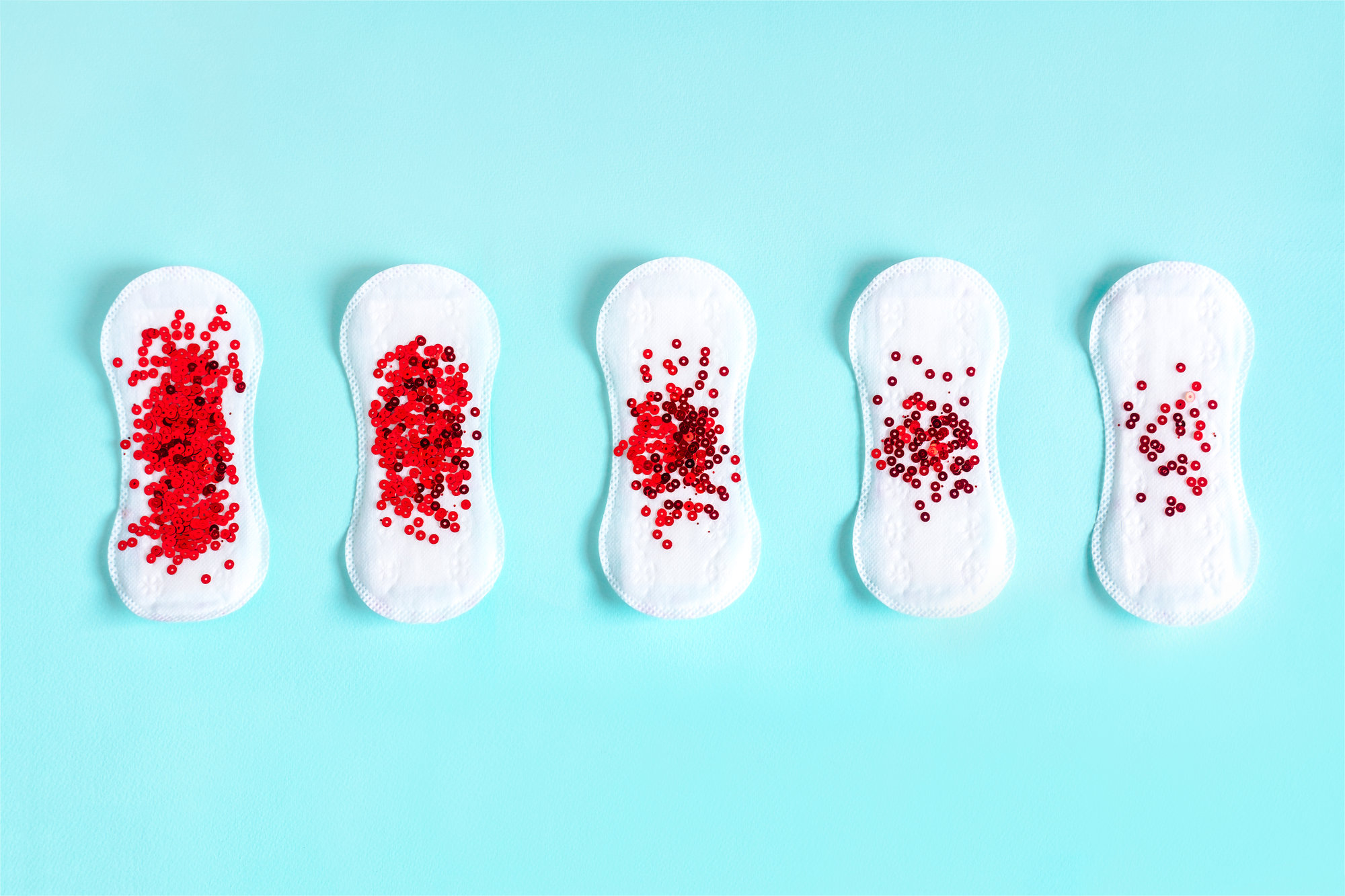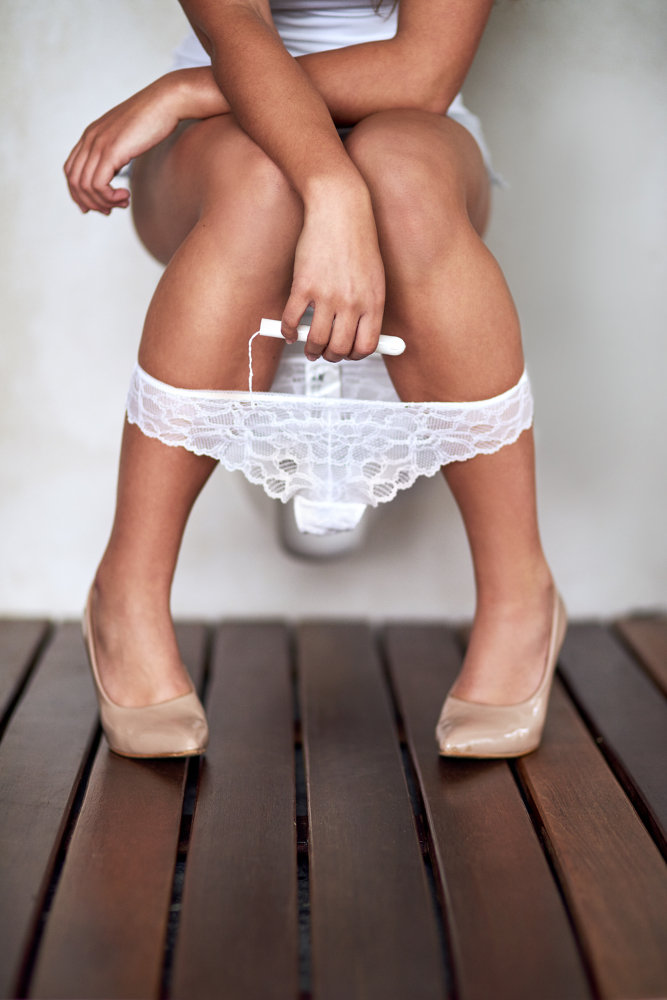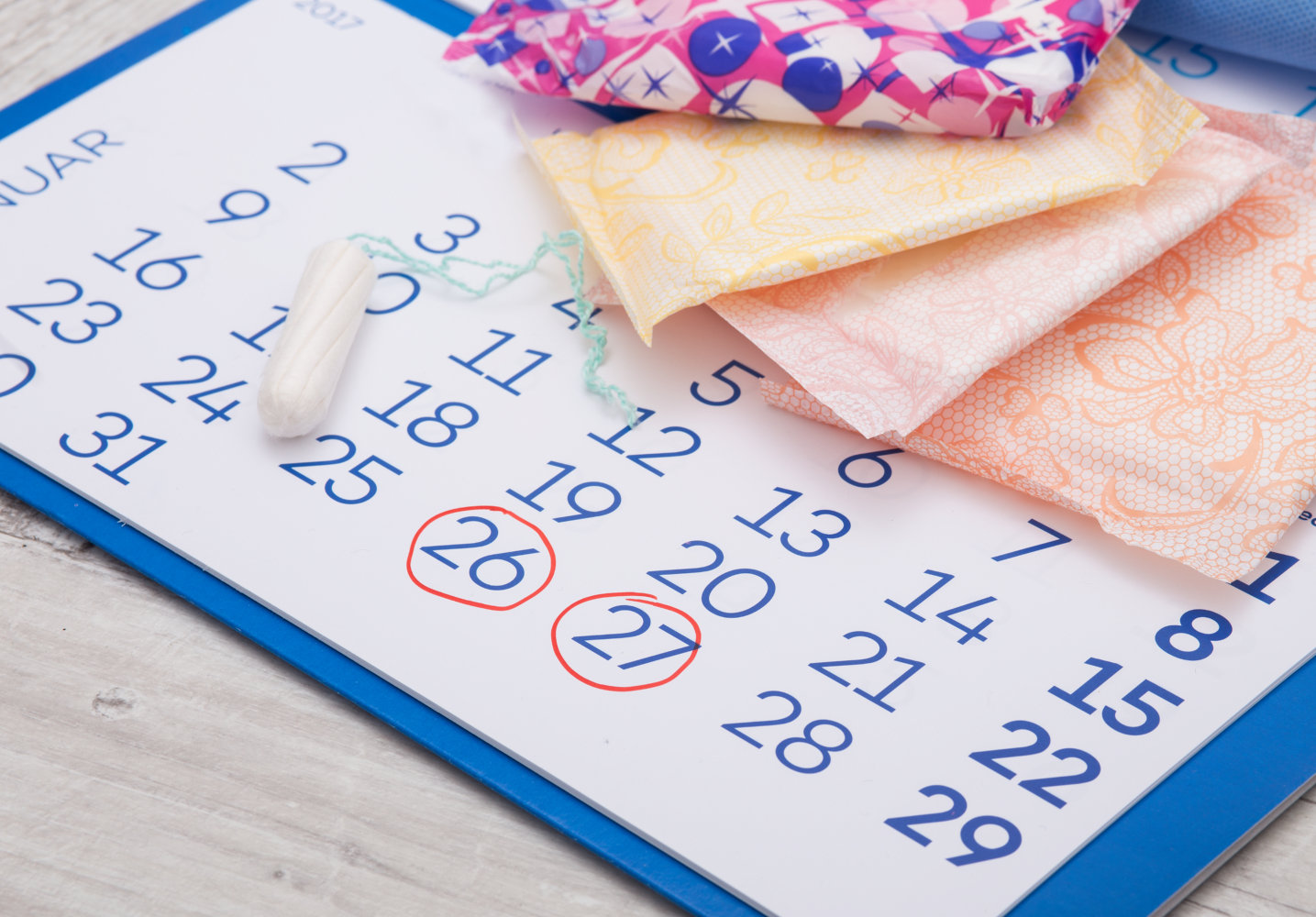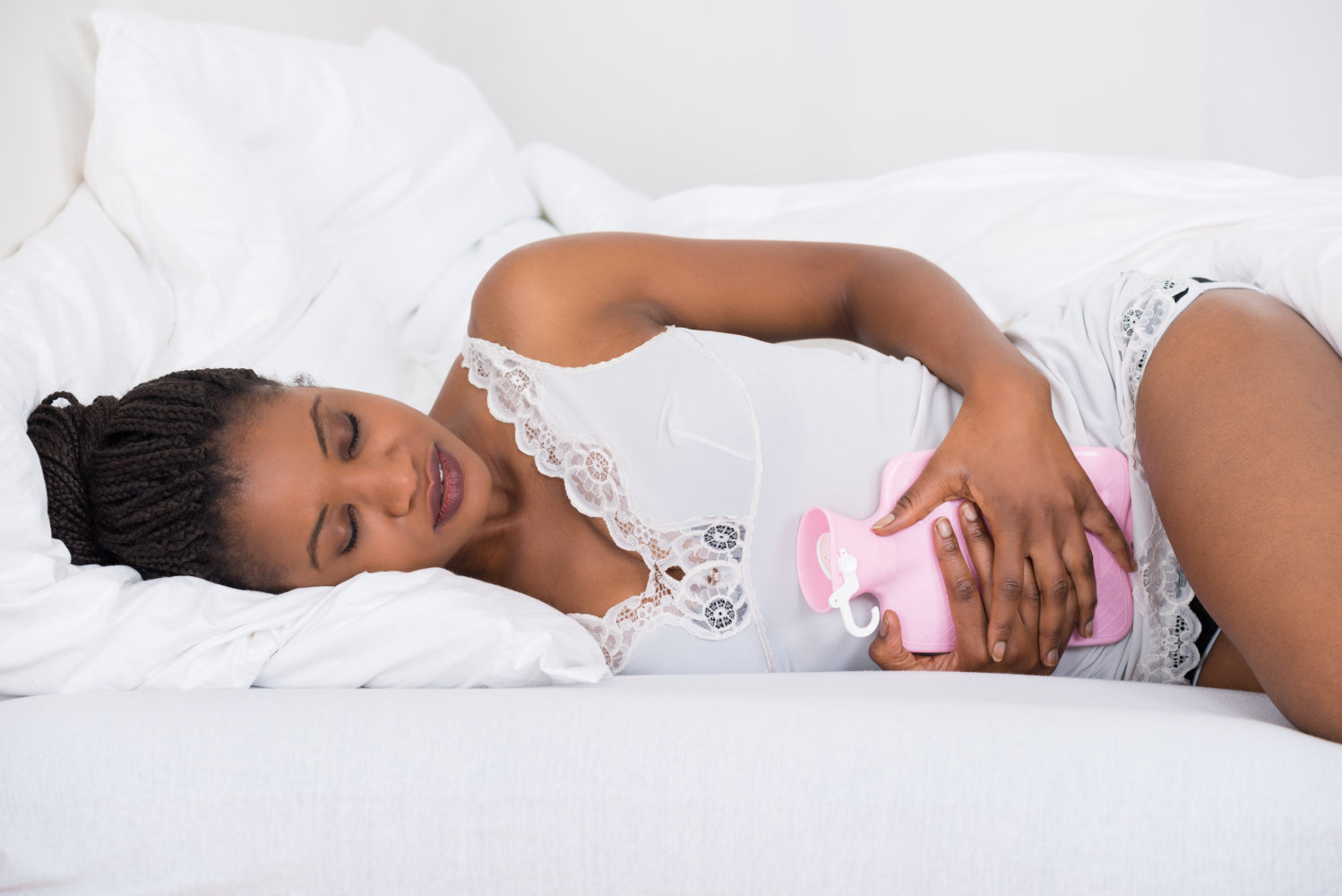If you're like almost every other woman on the planet, you make a face when you realize you've bled through a pad or when it's time to empty your menstrual cup (again). But enough with the eye-rolling already! Because that blood dripping out of you is trying to tell you something important, sister. And you should take a nice, long LOOK at it.
"Your period gives you a reliable and clear snapshot of exactly what is happening with your hormones," explains Alisa Vitti, a functional nutritionist, author of WomanCode, and founder and CEO of FLOLiving.com.
And seeing your blood — and realizing what it's trying to tell you — allows you to "take critical actions with your diet to eliminate symptoms before your next cycle," says Vitti. Not to mention prevent long-term probs, since unbalanced hormones lead to inflammation, which then leads to big-deal diseases.
Think: strokes, Alzheimer's, heart attacks … Nothing you want.
Here's a little cheat sheet to memorize next time it's Shark Week.
If your blood is a bright, happy cranberry color:

Normal! Especially if it's "the consistency of jello mix that hasn't set yet," adds Vitti.
If you have brown, spotty stains to start:

That's old blood that didn't make it out of your uterus the previous month, says Vitti. FYI, it's caused by low levels of progesterone.
If your periods last less than three days, you see very little blood, or you have skipped periods:

Nope, you're not "lucky." "A short period and only light bleeding can indicate you have low estrogen," Vitti says.
If you deal with super-heavy bleeding, maybe even with clots:

Changing your pad or tampon every hour on the hour? "You have elevated estrogen levels," Vitti notes. And many women who do also struggle with endometriosis, fibroids, ovarian cysts or polyps.
Recognize your cycle in one of those categories?

Then the next step is knowing what to do about it. How DO you actually get your hormones back to healthy levels?
Answer: Check out the online "V-Sign Type(™) Quiz."
Answer a few quick multiple choice questions about your period — like how you know when it's about to start, what PMS symptoms (if any) you have, if you're trying to conceive or are done having kids — and you'll get a pretty sweet understanding of not just what the color of your period blood's telling you, but what your specific physical symptoms mean — AND the types of foods and supplements that can help.
In other words, probably the same info you'd get if you paid big bucks to see a specialist. Except you're getting it for free. And can then compare notes with your friends. Because let's face it, hiding your Red Wedding is so early 2000s. Not to mention, it can screw up your health.
"Women's hormones should not be mysterious or ignored, but easy-to-understand information that women can use to take better care of themselves with food and lifestyle changes," says Vitti.
So, go ahead. LOOK already.




